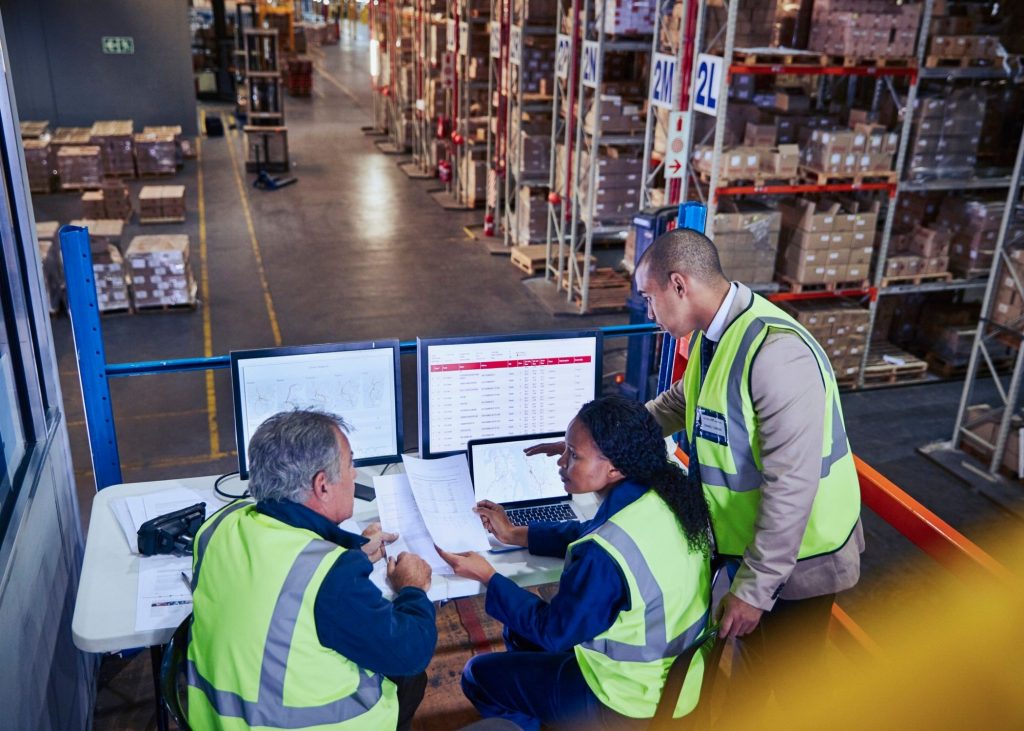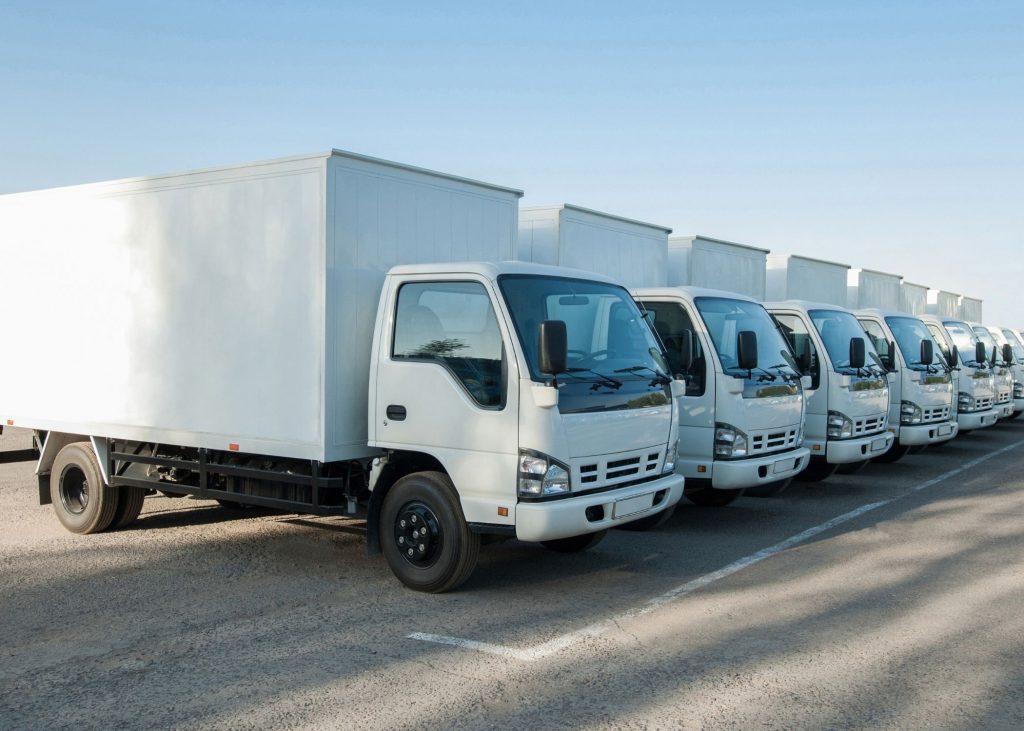To keep your business relevant and competitive, embracing advancements in technology in your industry is vital. While it can be intimidating to face change to the way things are done (especially when systems and processes have worked for so long already), not doing so could be a costly risk to the future of your business.
One such industry where tech transformation has been taking place is in transport logistics, with new innovation being created on a regular basis. In this article, we will explore some of the key tech trends impacting transportation and logistics and how logistics software can help keep your business competitive.
We’re going to take a look at:
- User Experience and Customer Service
- Cloud Technology
- Automated Delivery of Goods
- E-Commerce Technology
- Predictive Analytics and Data Mining
- The Internet of Things (IoT)

User Experience and Customer Service
Some of the key trends identified by enterprise software providers is that they are now focusing more on user experience and customer service. Technology can offer a lot to businesses, but if it’s too complex for employees to use, then it can actually have a negative impact on customer service experience. This is why companies need to focus more on adopting intuitive technology solutions that help their staff work more efficiently.
Selecting a Transport Management System (TMS) that is highly customisable to your business needs is the first step you can take toward having a positive user experience for employees and top quality customer service.
Cloud Technology
Businesses are now looking for more ways to connect with their customers, partners and suppliers through the use of cloud technology. With Transport and Warehouse Software becoming much more accessible online, it’s easier for companies to keep all aspects of their business in one place; this means they can be found much more quickly and easily, which is a huge benefit for all involved.
Ideally you want to invest in software that can support every arm of your operation, no matter where they’re based.
Automated Delivery of Goods
With advancements in technology, it’s now possible to automate the delivery of goods from one place to another. This allows businesses to significantly reduce their costs as systems and machines operate around the clock and don’t need days off.
Pandemic driven demand for delivered goods saw technology in this space accelerate, with considerable investment being made into companies involved in auto delivery of foodstuffs and other goods via drones and trucks.
Automated deliveries mean that products can be shipped to their destinations much faster than ever before, which is great for businesses who need to keep up with their competitors.

E-Commerce Technology
While E-Commerce is by no means ‘new’, it is clear that more businesses than ever are selling their wares online, with marketplaces such as Amazon disrupting the way products can be distributed across countries and continents. The rise of e-commerce has created new challenges for companies in the logistics industry to keep up with demand.
Technology to support this growing industry is becoming more advanced and sophisticated. Logistics software programs have been altered to handle the extra order volume that e-commerce creates, with new tech advancements being made every day. New software modules are able to help warehouse managers keep up with demand for their products online, helping them operate much more efficiently at a higher scale.
To remain competitive in this space, it is vital that your business has an intuitively designed online presence, with a website that is mobile friendly and enables consumers to easily browse, purchase and experience a smooth delivery. Having a quality Transport Management System is imperative to this process and the long term success of your business.
Predictive Analytics and Data Mining
By now you will have realised that technology has changed the transport logistics industry significantly, so it should come as no surprise that software providers are digging deep into available data to find out what their customers need. This means that solutions are now being created with the specific purpose of achieving a particular goal, rather than simply designing ‘one size fits all’ tools that may or may not be useful to everyone.
In this day and age it’s absolutely crucial for companies to gain as much insight into future trends as possible if they want to stay ahead of the curve. Data mining is one way in which this can be achieved, with providers poring over data from all sources in order to gain a better understanding of what their customers need and when they need it.
The Internet of Things (IoT)
If you’ve been following technology trends over the last couple of years, then it’s impossible to have missed hearing about IoT in some form or another. This term refers to connecting any device with an on and off switch to the internet (and/or to each other) so they can be remotely controlled.
The world of transport logistics is no different, with businesses now able to connect their vehicles and equipment together in order to make them more efficient; this means better communication between employees, machinery etc., which helps to drastically improve productivity levels and exceed client expectations.

Keeping Your Logistics Business Competitive
We’ve explored some of the key tech trends in transportation and logistics including user experience and customer service, cloud technology, IoT and predictive analytics. These developments are set to continue transforming the industry over the coming years as companies become more progressive with their use of new technologies to give them a competitive edge.
It’s important to think ahead and embrace technology through adopting solutions such as logistics software to ensure your business remains relevant and ultimately successful.
Ready To Transform Your Business?
Infocomm is a leading provider of Transport, Warehouse and Supply Chain ERP management software, to clients across Australia and New Zealand.
Like our customers, we’re constantly moving. Unless we’re delivering the latest solutions, we don’t think we’re doing our job. Contact our team of experts to find out how you can embrace technology to transform your business.

